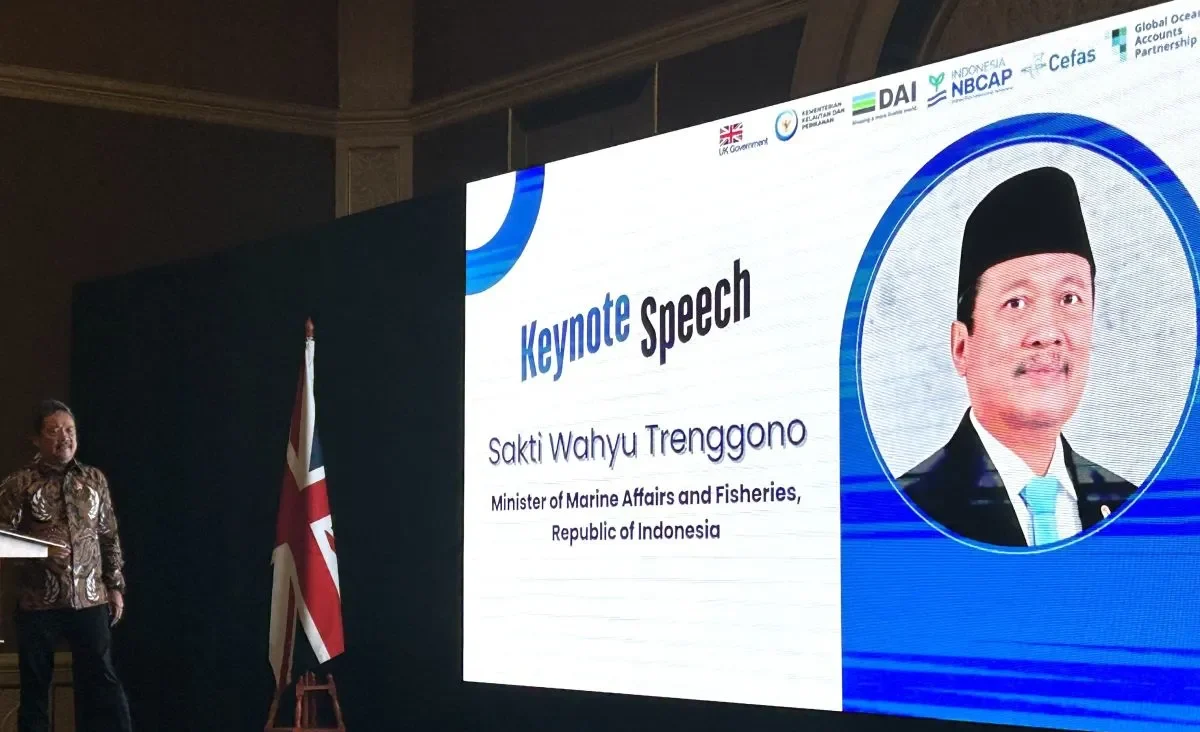WNAM REPORT: Marine Affairs and Fisheries Minister Sakti Wahyu Trenggono has sought international collaboration for the effective management of marine conservation areas.
The management of marine conservation areas in Indonesia—which is home to 23 percent of the world’s mangroves, 18 percent of coral reefs, and 15 percent of seagrass—would have implications for the global community, he said.
“Therefore, we view that facing financial and technical challenges for expanding and effectively managing marine conservation areas is a global responsibility and requires international collaboration,” the minister added.
He made the remarks at the launch of the Climate and Ocean Adaptation and Sustainable Transition (COAST) program, in cooperation with the United Kingdom, here on Tuesday.
The Ministry of Marine Affairs and Fisheries has started developing a model to generate blue carbon economic value in marine conservation areas that currently store around 98 million tons of carbon dioxide equivalent (CO2eq) and absorb 360 million tons of CO2eq.
A total of four pilot models have been planned in four locations—East Nusa Tenggara, West Nusa Tenggara, Riau Islands, and Central Java.
The pilot project will be implemented over 10 years and require an investment of US$3 million, with the expected results being carbon sequestration protection of more than 17 million tons of CO2eq.
Minister Trenggono further said that Indonesia plans to protect 10 percent of its marine area (equivalent to 30 million hectares) by 2030, and 30 percent or 97.5 million hectares by 2045.
“By 2024, Indonesia has protected 29.9 million hectares of the sea. This area is almost the same as the land area of England. However, we still have a long way to go to reach 97.5 million hectares,” he added.
In addition, Indonesia’s marine conservation areas protect around 1.1 million hectares of coral reefs, 84 thousand hectares of mangroves, and 150 thousand hectares of seagrass ecosystems.
The expansion of marine conservation areas, he said, will increase the area under ecosystem protection.
“However, according to our cost-benefit analysis in 2024, the cost of expanding and effectively managing 30 percent of marine protected areas is also significant. The costs required reach US$2.5 billion to US$3.4 billion, depending on the level of protection scenario,” he informed.
Therefore, Trenggono welcomed the UK’s COAST program, which will provide funding of up to 18 million pounds sterling to support Indonesia’s marine conservation efforts.
“Indonesia sincerely appreciates the invaluable support from the UK in encouraging marine conservation efforts,” he said.


